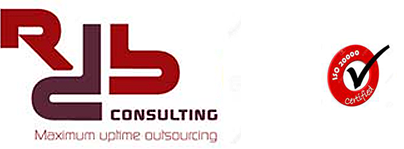Knowledge Objects (KO), a trailblazer in healthcare risk management IP embedded software applications and solutions, proudly celebrates 25 years of innovation, growth and global impact. From its inception as a rules engine solution for medical schemes, KO has evolved into a comprehensive, AI-powered platform that delivers end-to-end administration and risk management solutions for health insurers and medical schemes across multiple markets.
“Our journey began with a focus on embedding clinical and business rules into healthcare systems,” said Chantal Viljoen, Chief Commercial Officer of Knowledge Objects. “Over time, we transformed into a full-service solution provider, integrating all aspects of healthcare administration and risk management into a single, intelligent platform.”
Integrating artificial intelligence was a major leap in KO’s evolution. By embedding predictive modelling capabilities, KO has empowered clients to make real-time, data-driven decisions that improve outcomes and reduce costs. This commitment to innovation was recognised globally when KO received the 2024 Global Excellence Award for AI-Powered Risk Management Solutions, following its 2021 AI in Healthcare Award in Singapore.
“These awards are a testament to our strategy of staying ahead of the curve,” said Viljoen. “They celebrate our technology and the outcomes we’ve delivered: reduced waste, improved patient care and contributed to creating a more sustainable healthcare funding environment.”
At the heart of KO’s innovation is JARVIS, a modular, AI-powered platform that has been described as a game-changer in healthcare risk management. Originally launched in Singapore during 2020 and 2021, JARVIS was developed to address the limitations of legacy and disparate systems by intelligently automating and integrating all episodes and events of managed care, claims, member management and predictive analytics into one responsive solution.
“JARVIS is the result of our continuous enhancement strategy,” explained Viljoen. “It brings together modern technology, advanced risk management and seamless integration to deliver real-time insights at both individual and population levels.”
JARVIS supports multi-region localisation, cloud scalability and embedded care modules such as Digitised Managed Care (DMC) and Patient Driven Care (PDC). These modules enable real-time case management, reduce hospital length of stay and readmission rates while improving patient outcomes through holistic management of patient profiles opposed to the siloed offerings of disease, medicine and hospital benefit management available in the market.
The platform’s intelligence is powered by over 70 000 clinical and business rules, combined with AI-driven predictive modelling and insights from KO’s expert panel of medical key opinion leaders, as well as provider efficiency modelling.
This unique blend of machine and human learning ensures that JARVIS delivers consistent, measurable value. While its AI-driven predictive modelling enables proactive risk detection and decision-making at both patient and population levels, the provider efficiency module serves a fundamentally different, yet equally transformative, function.
Rather than predicting risk, it rigorously evaluates provider performance by analysing outcomes, quality measures and cost-effectiveness. This enables the formation of intelligent, value-based networks built around centres of excellence. These networks are not only driven by lowest-cost bidding or narrow disease management metrics, but by demonstrable results in patient recovery, reduced readmissions and optimal use of healthcare resources. In this way, JARVIS helps schemes and insurers shift from fee-for-service models to outcome-oriented contracting that rewards clinical excellence and financial sustainability.
JARVIS is also designed for seamless integration across diverse healthcare systems and geographies. Its modular architecture allows it to be deployed as a full end-to-end platform or as specific modules for claims, risk, authorisations and finance, depending on client needs. Integration is achieved through:
- Adaptable rule sets mapped to local clinical protocols, coding systems (eg, various ICD schema across different markets, CPT cross walked with local coding schema), as well as tariffs and modifiers applicable to different markets and respective customers.
- REST APIs, SOAP services, batch files and middleware for compatibility with legacy and modern environments.
- Collaborative configuration with clients to ensure operational alignment and minimal disruption.
“Our approach ensures that KO becomes a strategic partner, not just a plug-in solution,” said Viljoen.
South Africa’s healthcare technology landscape is undergoing rapid transformation. While debates continue across various models for ensuring equity in healthcare funding across the public and private sectors, technology is playing a pivotal role in bridging gaps in access, efficiency and care quality. Artificial intelligence is becoming mainstream, particularly in diagnostics and chronic disease management, while mobile health platforms and AI-powered tools are being deployed to underserved communities to improve early detection and reduce clinician workloads through targeted intervention.
As the country grapples with rising healthcare costs and a growing burden of noncommunicable diseases, solutions like JARVIS are well-positioned to support a more integrated, data-driven and patient-centric approach to care.
KO’s data-driven culture has delivered tangible results for clients. Examples include:
- A 13.2% reduction in in-policy claims associated with fraud, waste, and abuse (FWA).
- An 11% reduction in readmissions for high-risk procedures like back surgeries and hip replacements.
- A 12%-20% decrease in readmissions for chronic condition cohorts.
- A 5%-11% savings in total hospital costs related to reduced readmissions.
- Operational cost reductions exceeding 30%, driven by automation of 98% of claims and 80% of underwriting decisions, as well as automated risk management interventions.
- Specialist cost reductions of up to 15% through intelligent provider profiling and network strategies.
KO’s consultative approach ensures that each client receives a tailored solution aligned with their business strategy. “We don’t ask clients to change their processes to fit our technology,” said Viljoen. “Our technology enables their strategy.”
As KO looks to the future, it remains committed to expanding its footprint across Africa, Asia and the UK, while continuing to lead in AI-driven healthcare innovation. “We’re not just building software, we’re shaping the future of healthcare,” concluded Viljoen.
Share
Editorial contacts
